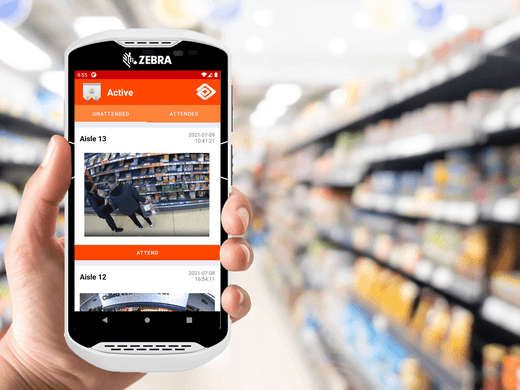Originally published by Retail Week.
With retail crime making the headlines, tech companies are coming up with inventive ways to tackle the problem. From security robots to AI camera systems, we highlight four innovative solutions to shoplifting.
From Dame Sharon White cautioning that criminals have a licence to shoplift to the Co-op's plea for more to be done to stop brazen and violent theft in its stores, few topics have dominated the retail landscape this year like crime.
In October, the British Retail Consortium put the scale of retail theft at £953m, despite retailers shelling out more than £700m in crime prevention. It put the total cost of retail crime at £1.76bn for the year to April 2023.
The number of solutions developed to meet the problem head-on has also increased.
"New innovation is coming to market all the time as shrink has become a bigger problem in recent years, while the cost of technology solutions is falling," says Mike Tattersall, Managing Director, Innovation and Chief Commercial Officer at investment and innovation advisory firm True.
"Traditional solutions still play a very important role, but retailers now have more tools in their armoury to tackle the issue. The combination of technological advancement and high levels of investment support naturally results in better, cheaper solutions being developed, which are increasingly accessible for retailers to implement."
"We don't see a single silver bullet technology that can eradicate the problem but the opportunity for retailers to deploy more sophisticated asset protection tools has never been greater."
As we approach another tight Christmas where every penny counts, Retail Week has teamed up with True to shine a light on some of the tech industry's newest and most disruptive solutions for tackling crime and shrink.
Wiliot
Founded: 2017
Based: Tel Aviv, Israel
Retailers have been getting increasingly serious about asset tagging in recent years, with radio-frequency identification (RFID) tags providing certainty about where things are in stores or the wider supply chain.
However, RFID tags have some flaws, such as interference from metal and humidity, and they are large and easy for shoplifters to peel off. Enter Wiliot, which aims to disrupt the RFID industry with its battery-free Bluetooth tags.
Wiliot tags have more use cases than other asset tags, such as frictionless checkouts and proximity marketing. The tags, or pixels, are also much smaller and therefore harder for criminals to identify.
Ascento
Founded: 2023
Based: Zurich, Switzerland
When stationary, the Ascento robot looks as unassuming as a fold-up bike, but when activated it transforms into a high-powered defence device.
The autonomous robot can be used wherever retailers or landlords might have a security guard on patrol, including car parks, shopping centres and warehouses, and identifies security threats by using computer vision and thermal imaging.
The Ascento robot is equipped to traverse tough terrain, avoiding obstacles with sensor function algorithms. It also self-charges and is weatherproof, to boot.
SAIGroup
Founded: 2018
Based: London, UK
SAIGroup's technology turns the humble CCTV system into a real-time, active anti-theft device.
Using computer vision technology, AI camera systems detect if people on the shopfloor are pocketing products and will send a notification directly to staff.
The camera systems can also identify mis-scans at self-checkouts, recognise staff theft and fraud at tills, and offer a generative AI chat that allows stores to glean information about thefts more easily, allowing them to recognise problem areas and address them.
The system tacks on to whatever existing camera and point-of-sale system is already in place, so retailers do not have to shell out for new infrastructure to make it work.
SeeChange
Founded: 2018, as a subsidiary of Arm, becoming independent in 2021
Based: Manchester, UK
Described as an AI platform for the world's retail ecosystem, SeeChange's modular computer vision platform is already being used by Aldi and Asda.
The technology recognises objects, not just scenarios, to identify all sorts of potential issues in stores, from shoplifting and spillages to ensuring compliance with safety procedures.
By using AI to stack separate object recognitions, the technology is more scalable and flexible than other computer vision platforms out there. It can also be modified to suit specific store operations.
-end of article -
If you'd like to get in touch regarding any of these technologies, drop us an email. In the meantime, download our insight report on Shrink here.


